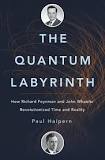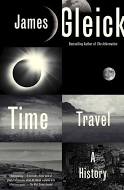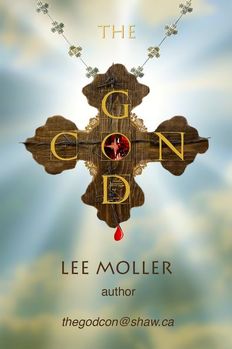 On or about 1977, John Archibald Wheeler spoke at the Hebb Theater at UBC, and I was there. The title of the talk, as I recall, was "The End of Physics?". Wheeler was one of the preeminent physicists of his day. He used to live next to Einstein and knew more about gravity than just about anyone. He literally wrote the book (Gravitation) on the subject. Richard P. Feynman was his student. Without question, if you were to name the top five theoretical physicists of the 20th century, they would be among them. A third would be Einstein. Others possible candidates include giants like Gell-Man, Pauli, Dyson (of Dyson Sphere fame), Heisenberg, Bohr, and recent Nobel winner Kip Thorne. While priests stare into their navels to try to find the secrets of the universe, Feynman and Wheeler, the protagonists of the book, were looking to nature to answer the big questions. Both Feynman and Wheeler were skeptics. Feynman liked the phrase "Cargo Cult Science" (read Guns, Germs and Steel by Jarod Diamond for more on Cargo Cults). The author is himself a physicist which helps a lot in the narrative. Feynman and Wheeler were quite different people. Wheeler's thoughts would often stray to the philosophical, whereas Feynman took one course in philosophy to get his Art points for his degree (something he and I have in common), and thought it all rubbish. The thoughts of both men were unconstrained by conventional thinking and often bent to the philisophical. A good example: Wheeler once suggested that all electrons are identical to each other because they are all the same electron! He also suggested that positrons (anti-electrons) are electrons moving backward in time (mostly because the math worked). Now that is thinking outside the box. The universe is very strange and we literally do not have the language or experience to explain it. But to a physicist, whatever the explanations, the math must work out. Feynman invented a mathematical trick called the "sum of histories" that got rid of pesky infinities and gave real answers to quantum mechanical problems. Oddly, QED (Quantum Electrodynamics), is the most accurate theory in physics history, but Feynman was always leery of it because he did not trust the math… his own math. Wheeler gave rise to the idea of "wormholes", which has become a Sci-Fi staple. Both physicists dismissed the idea of wormhole travel (it would require matter with anti-gravity, and the machinery would have the mass of a galaxy) as implausible. Wheeler in later life would turn to an information based view of physics. Another reflection of his philosophical bent. Bohr once said "Philosophy is too important to be left to philosophers." and Wheeler agreed. Both physicists struggled with the nature of time and the book gives the usual discussions of thermodynamics in that regard. The book tells the very human story of both protagonists. Feynman was a hound, but when he finally found the right woman, he stuck with her. His swan song was the O-ring Challenger disaster story (there is a good movie on that subject with William Hurt). While Feynman was free-spirited, Wheeler was more of a homebody/family man. Wheeler died in 2008; Feynman died of cancer in 1988. As mentioned, Wheeler liked the idea of information as the basis for physics. He was inspired by rapid advances in information theory and in computing in general. Sadly, Feynman tied too soon to really see what modern computing can really do. He would have loved it. Future physicists will be able to manipulate formulae as they always have, but now with the aid of computers to make sure they got it right. And more importantly they will be able to see the results in real time in graphical form. Kepler spent years grinding numbers to validate his three laws. With a modern computer, he would have been able to see the theory and the observations line up before him. What the next Feynman will be able to do with such tools is what keeps the game interesting. In one amusing anecdote, Feynman (I think) forgot the location of a large physics conference. He had an idea, and asked the driver if any of his fares had used words like covariant and "geuvee" (he might have said "gee-moo-noo" using Greek letters). He had, and Feynman said, "Take me to where you took them." This was an unexplained inside joke. "Geeuve" is actually Guv (where u and v are subscripts). Guv appears in Einstein's field equations all over the place. It is known as the "metric tensor". The "metric" is essentially a description of the shape of a mathematical space, and it is a corner stone of general relativity. I really liked this book. No math. Lots of mind-bending ideas. And real lives.
0 Comments
 It's about time. Or more aptly, it's about cultural speculation on the nature of time and time travel. I do not have a lot to say about this book. It is well written and very well researched. There is a lot of material to cover. Here are just a few of the items discussed:
The usual brief discussions of the speed of light and the Second Law of Thermodynamics (i.e.: You cannot stir things apart) are there. It is generally the Second Law that gets in the way of time travel (another is causality problems). The universe began in an extremely ordered, low-entropy state. How it got that way is unknown. But once things got started (the big bang), entropy began to increase. Entropy is essentially the amount of disorder in a system. One possible end for the universe is the so-called heat-death: the universe expands endlessly; stars die; the matter in stars ultimately decays; and all we are left with is a thin gruel of electrons and positrons orbiting each other with an orbital diameter the size of the universe today. Would time still exist? There would be no events to mark its passage, so it is hard to say. It is a fact of physics that if there arrow of time were suddenly reversed, no laws physical would be broken. At the atomic level, you would not be able to tell that time was running backwards. But at the human level, it would be obvious, as you watch your pee magically pull itself out of the toilet water and spontaneously shoot itself back into your body. Time travel has implications about free will that are summarized. The book is light on physics, but gets the physics right. It does not: Tell you how to build a time machine; tell what time really is (other than the usual quips, such as "time is needed to keep everything from happening at once"; or resolve the causality paradoxes involved (e.g.: Go back in time and kill your grandmother… what happens?). Gleick has written a few science books, including his very good biography on Richard Feynman. ATC, I liked Hawking's A Brief History of Time, although, to be fair, they are not really comparable. |
AuthorLee Moller is a life-long skeptic and atheist and the author of The God Con. Archives
May 2024
Categories
All
|

 RSS Feed
RSS Feed